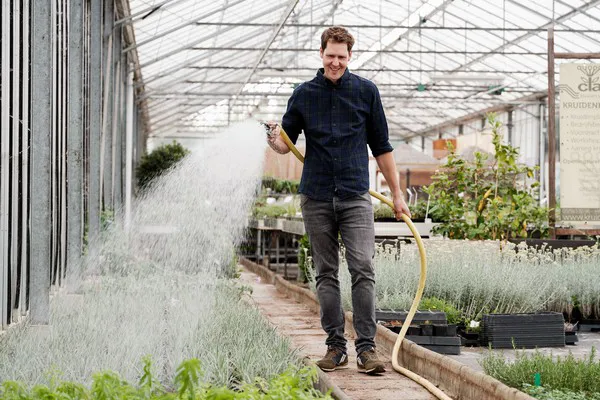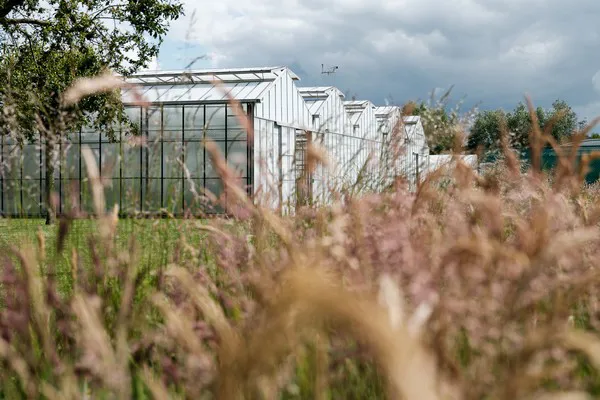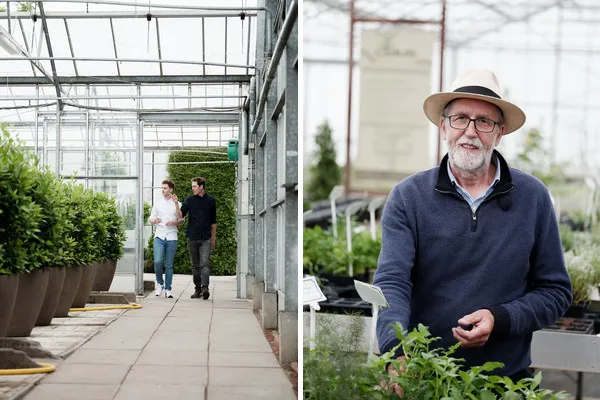For Kruiden Claus, these months are normally the calmer months of the year. The nursery experiences its peak in spring, but for several years now, it has also added a "second season" for the herb business. "In recent years, we have noticed that in autumn, there is a lot of demand from tree nurseries for herbs, which are then mainly used as ground cover or undergrowth," says business manager Lode Claus.
The company comes from a relatively busier summer period, during which sales continued to run well during the usually calmer months. "Normally garden centers, which is a large part of our customer base, order less frequently during the holiday months. However, the changing, humid weather was not detrimental to us. It was ideal vegetable gardening weather, so sales still went through well. More than if it were a traditional summer, which is nice because the wet spring meant the season had started a bit later. However, we managed to get our numbers right due to this development."

Second season
Only now, then, as mentioned, the 'second season' for Kruiden Claus is starting. "Spring is traditionally the busiest period. March to June, but from the tree nurseries, September to November is suddenly also on the busy side. At this time of year, good numbers go to France and Luxembourg, among others, we notice. It is a short and somewhat less intense season than the 'first season,' but this way, we can still create good sales."
"It is still the tradition for nurseries to plant in autumn and then work with species such as the March pansy, for example. It is a beautiful, aromatic pansy that, as its name suggests, blooms in March. However, you should plant in the autumn so that the undergrowth is already well established by spring. Then you can work with a head start, and certainly, from the wholesalers who supply garden contractors, we see a lot of demand for these varieties during autumn."
Wild garlic as a healthy spring opener
The nursery itself will also remain active in the coming months by potting different types of herbs, which should be ready in spring. "Now is ideal weather to pot up quite a few more herbs. Especially in recent years, it remains mild until November, which means that if you start on time, you can already offer a nice plant in spring."

"An example of such a herb is wild garlic. These come up from mid-February and is one of the first spring herbs in stock. In contrast, to make sure it is available early in spring, you need to pot it up in the autumn so that you don't have to force it in spring either. The season is only short and lasts until April, but wild garlic traditionally heralds spring."
This can also be deduced from the name, according to Lode. "In French, wild garlic translates to L'Ail des ours (Allium ursinum). This literally means bear's garlic, referring to the fact that in early spring, when the bear comes out of hibernation, there are no leaves on the tree yet or much fresh food to be found. Wild garlic, however, is already growing. This is what the bear then chooses to eat, and it is said that this herb is the ideal purge of possible parasites in the bear's intestines. By extension, it is also the ideal herb for people to go into spring healthy, and certainly, in Flanders, this is being made good use of."
Herbs, growing, cooking
Kruiden Claus additionally organized a 'Dinner with the Queen' this summer. "That actually grew out of the book we wrote and revolved around the value of the bee. It's a gourmet dinner amidst the fields, where the chef, with whom we have collaborated, prepares the meals. We then provide the information and experience around the herbs. It was a very successful event, where, despite the poor weather, we welcomed around 800 guests."

It is also a reason why Lode, together with his father Christian, is preparing a sequel to the book 'Kruiden, kweken, koken' (Herbs, grow, cook). "It would be the 5th book, and we recently sat down with the publisher for it. We got a lot of positive responses to the last book. The combination of growing and cooking, first focusing on the herb and then coming up with a recipe around it, seems to be appreciated. As a result, we want to write a follow-up book from the same concept, to be published next September. That is still a long way off, but it gives us the chance to be able to highlight herbs through all seasons. Both spring and autumn herbs, classic, and some specific special species. A very nice way to put the herbs at the center," Lode concludes.
For more information:
Lode Claus 
Kruiden Claus
Beerstraat 1
9770 Kruishoutem, Belgium
Tel.: +32 (0)498 106 733
[email protected]
www.kruidenclaus.be
